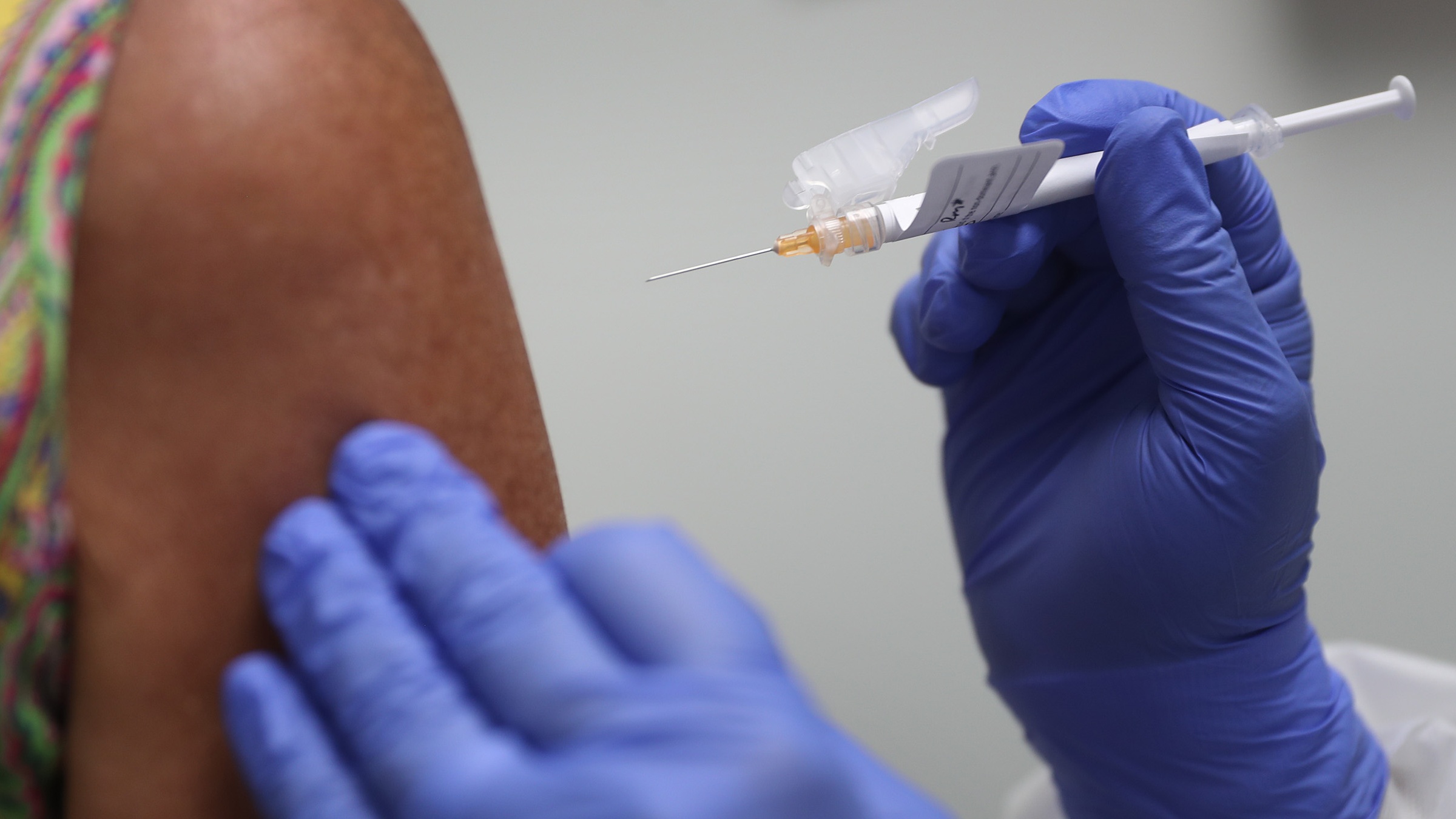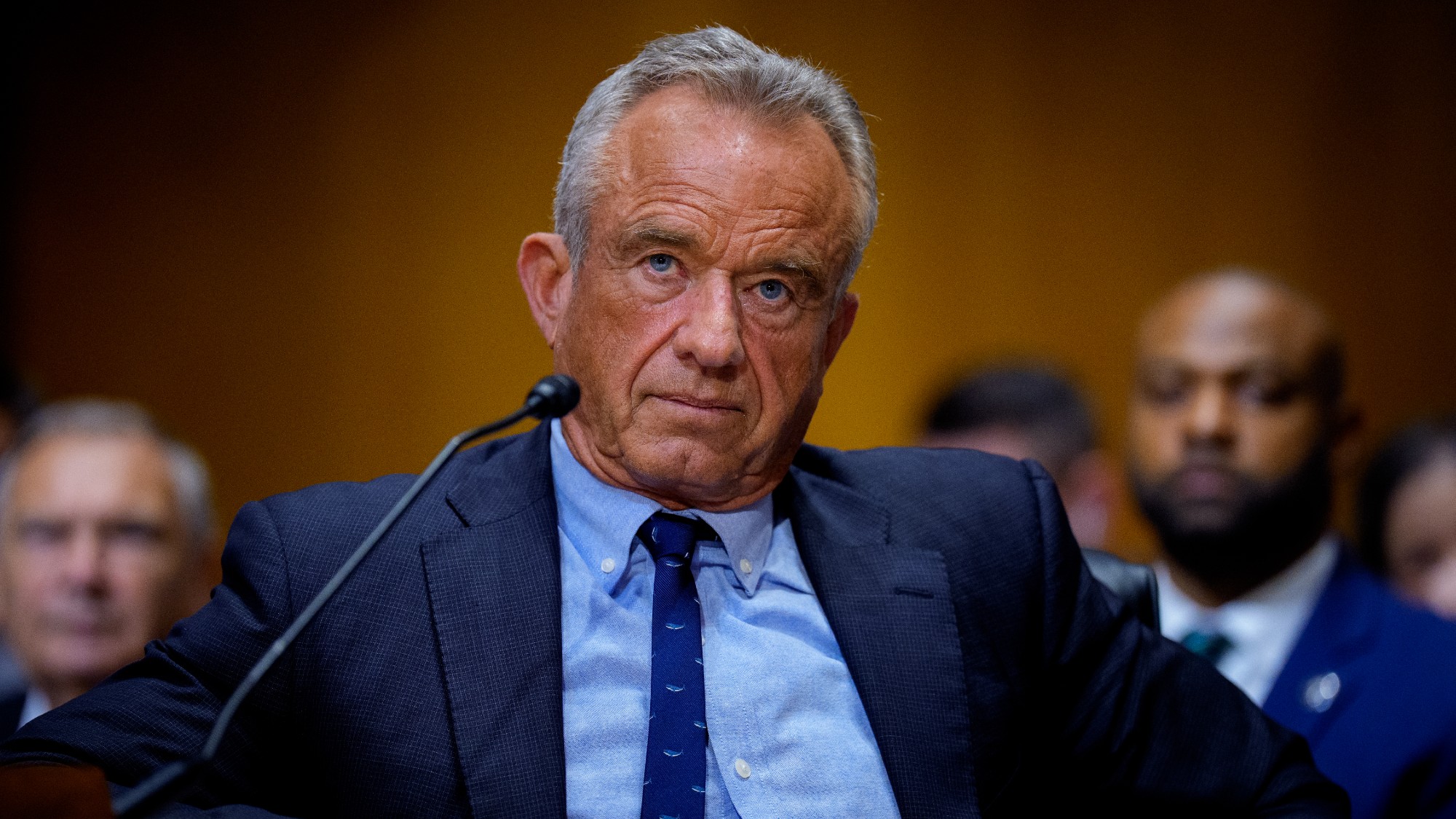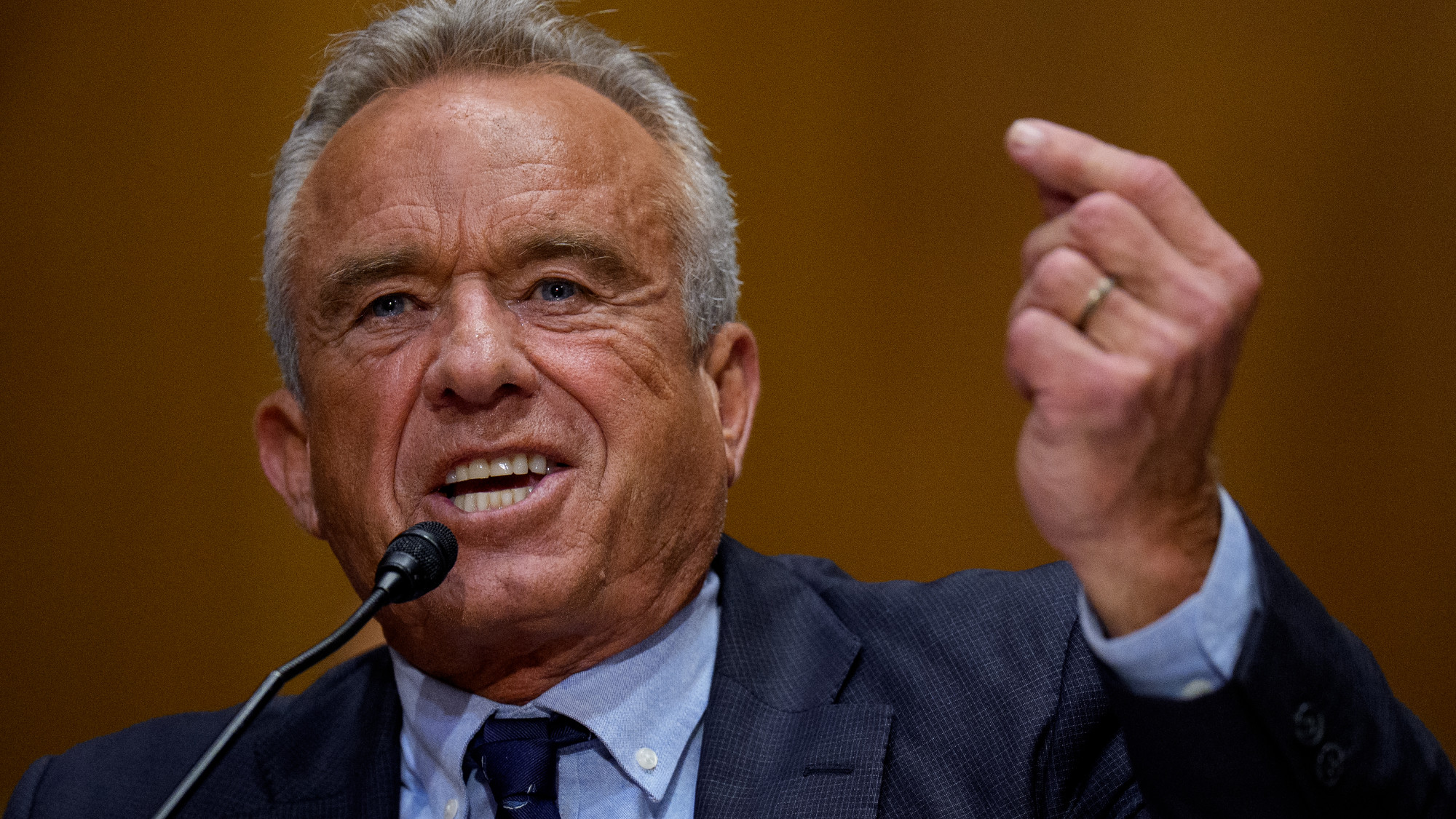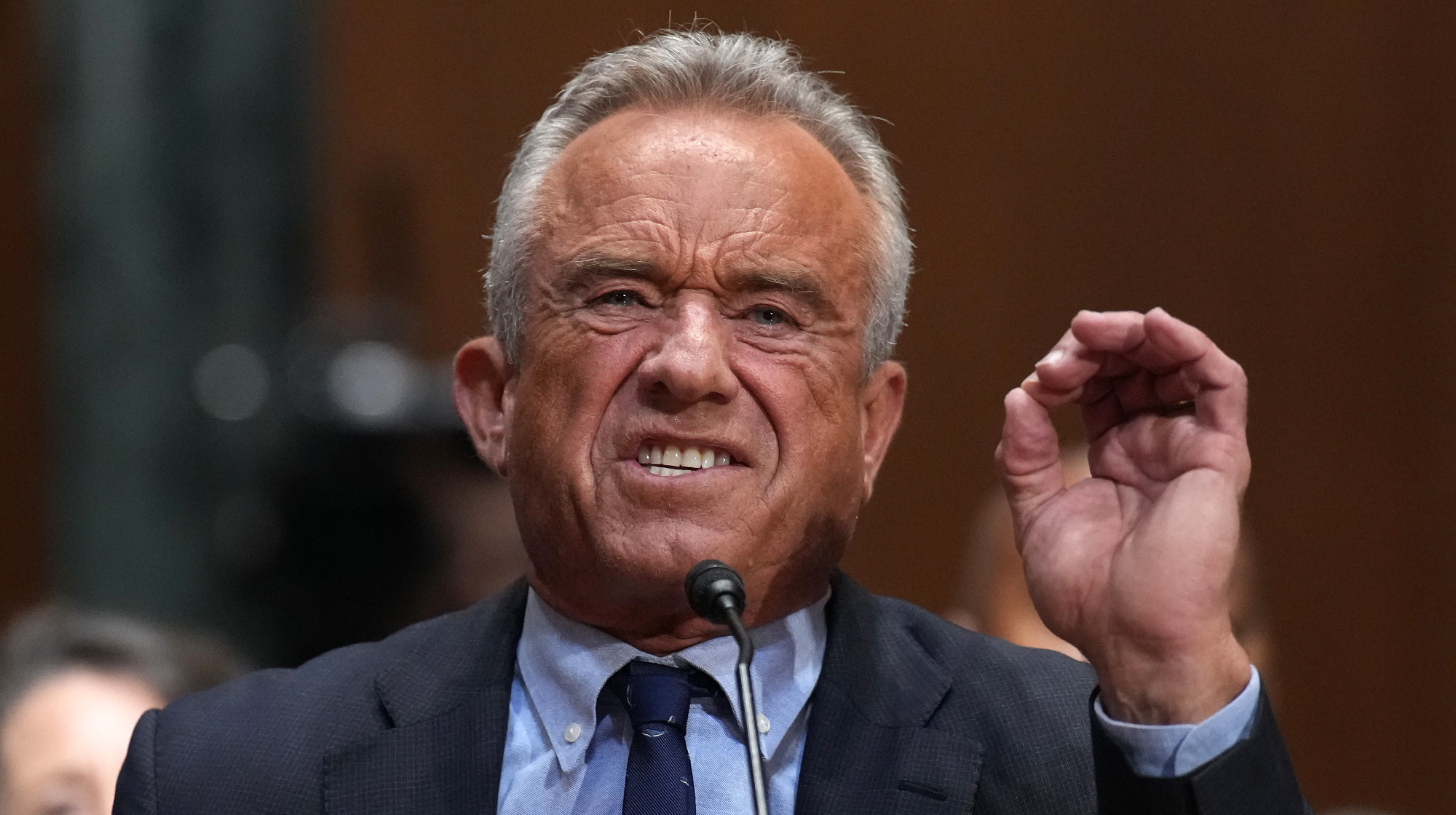Coronavirus: Oxford vaccine ‘may be rolled out within weeks’ - but UK faces jab shortages
Mass production difficulties will limit early supplies

A free daily email with the biggest news stories of the day – and the best features from TheWeek.com
You are now subscribed
Your newsletter sign-up was successful
Two Covid-19 vaccines are on the verge of being certified as safe and effective - but production delays mean the first batches may reach no more than a fraction of the UK population.
A homegrown vaccine, developed by Oxford University and manufactured by AstraZeneca, has the “possibility of being ready before the end of the year”, according to Kate Bingham, the chair of the government’s vaccine task force.
She told MPs yesterday that the first three batches of the drug, now in production, “should get us up to about four million doses by the end of the year”. But as The Telegraph points out, the government pledged in May that “30 million vaccines would be ready by September to allow for immediate mass deployment if trials were successful”.
The Week
Escape your echo chamber. Get the facts behind the news, plus analysis from multiple perspectives.

Sign up for The Week's Free Newsletters
From our morning news briefing to a weekly Good News Newsletter, get the best of The Week delivered directly to your inbox.
From our morning news briefing to a weekly Good News Newsletter, get the best of The Week delivered directly to your inbox.
The delay is down to the technical challenge of splicing an immunity-generating protein from the coronavirus with a harmless chimpanzee virus that will carry it into human cells.
“It’s not through lack of care and attention or availability of equipment or anything like that,” Bingham said. “It’s just that this normally takes a very long time.”
Another potential vaccine, developed in Germany by Pfizer and BioNTech, is simpler to manufacture but “contains a type of genetic material known as mRNA that must be stored at minus 70C”, The Times reports. That makes it difficult and expensive to distribute.
The UK has signed deals to buy 350 million doses of a total of six vaccines, all of which are undergoing trials. Once the results are published, the government’s health authorities will decide whether to approve their widespread use.
A free daily email with the biggest news stories of the day – and the best features from TheWeek.com
“The US regulator, the Food and Drug Administration, has said it wanted at least 50% efficacy to approve a vaccine,” The Guardian reports. “But if one was found to prevent 40% of cases, [UK] policymakers would have to consider whether it would be of help to the NHS.”
Holden Frith is The Week’s digital director. He also makes regular appearances on “The Week Unwrapped”, speaking about subjects as diverse as vaccine development and bionic bomb-sniffing locusts. He joined The Week in 2013, spending five years editing the magazine’s website. Before that, he was deputy digital editor at The Sunday Times. He has also been TheTimes.co.uk’s technology editor and the launch editor of Wired magazine’s UK website. Holden has worked in journalism for nearly two decades, having started his professional career while completing an English literature degree at Cambridge University. He followed that with a master’s degree in journalism from Northwestern University in Chicago. A keen photographer, he also writes travel features whenever he gets the chance.
-
 What to know before filing your own taxes for the first time
What to know before filing your own taxes for the first timethe explainer Tackle this financial milestone with confidence
-
 The biggest box office flops of the 21st century
The biggest box office flops of the 21st centuryin depth Unnecessary remakes and turgid, expensive CGI-fests highlight this list of these most notorious box-office losers
-
 What are the best investments for beginners?
What are the best investments for beginners?The Explainer Stocks and ETFs and bonds, oh my
-
 How corrupt is the UK?
How corrupt is the UK?The Explainer Decline in standards ‘risks becoming a defining feature of our political culture’ as Britain falls to lowest ever score on global index
-
 Childhood vaccines: RFK Jr. escalates his war
Childhood vaccines: RFK Jr. escalates his warFeature The health secretary cut the number of recommended childhood vaccines from 17 to 11
-
 The high street: Britain’s next political battleground?
The high street: Britain’s next political battleground?In the Spotlight Mass closure of shops and influx of organised crime are fuelling voter anger, and offer an opening for Reform UK
-
 Is a Reform-Tory pact becoming more likely?
Is a Reform-Tory pact becoming more likely?Today’s Big Question Nigel Farage’s party is ahead in the polls but still falls well short of a Commons majority, while Conservatives are still losing MPs to Reform
-
 Taking the low road: why the SNP is still standing strong
Taking the low road: why the SNP is still standing strongTalking Point Party is on track for a fifth consecutive victory in May’s Holyrood election, despite controversies and plummeting support
-
 RFK Jr.’s anti-vaccine crusade comes under fire
RFK Jr.’s anti-vaccine crusade comes under fireFeature Robert F. Kennedy Jr. faced a heated hearing as senators accused him of lying and spreading chaos
-
 Hostile architecture is 'hostile — to everybody'
Hostile architecture is 'hostile — to everybody'Instant Opinion Opinion, comment and editorials of the day
-
 RFK Jr. faces bipartisan heat in Senate hearing
RFK Jr. faces bipartisan heat in Senate hearingSpeed Read The health secretary defended his leadership amid CDC turmoil and deflected questions about the restricted availability of vaccines